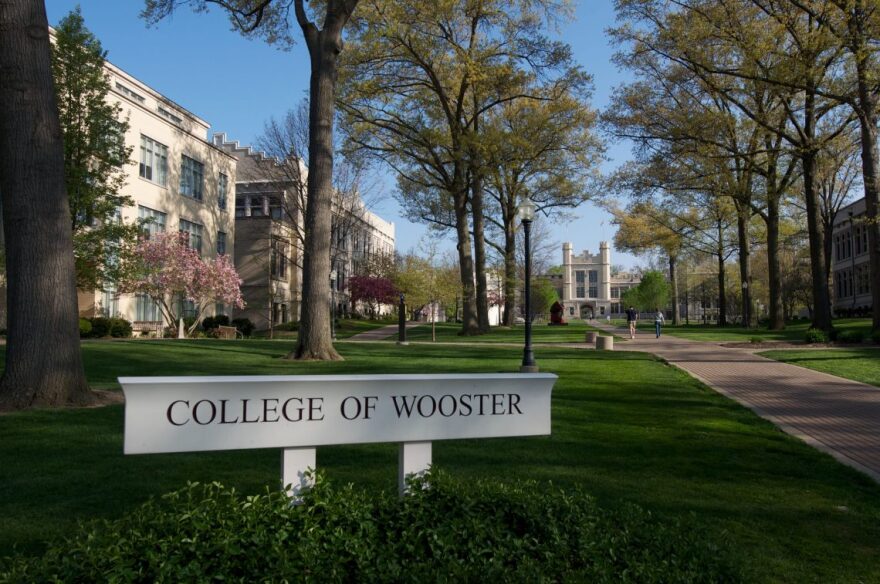Here are your morning headlines for Friday, June 18:
- Ohio observes new Juneteenth holiday
- College of Wooster to require vaccinations
- State of emergency lifted Friday
- Summit health, Metro RTA partner on vaccination clinic
- DeWine: House expulsion vote should be respected
- Revenue estimates to build Ohio budget jump by $3.3 billion
- Ohio Senate OKs 'Collin's Law' to increase hazing penalties
Ohio observes new Juneteenth holiday
State employees get Friday off in observance of the new federal Juneteenth holiday. President Joe Biden signed legislation Thursday adding the holiday, which commemorates the end of slavery in the U.S. Since Juneteenth falls on a Saturday this year, it will be observed Friday. The University of Akron says critical activities already scheduled will continue, however, other non-affected employees will be permitted to take the day off with pay. Kent State University will honor the day on Monday, with university offices closed and classes canceled.
College of Wooster to require vaccinations
The College of Wooster says it will require all students to be fully vaccinated against COVID-19 before the fall semester. Students who have medical, disability, or religious reasons why they cannot receive a COVID vaccine may apply for an exception. Cleveland State University is the only other college in Northeast Ohio requiring vaccinations. Others in Ohio include Kenyon College and Ohio Wesleyan University.
State of emergency lifted Friday
More COVID restrictions and orders end Friday in Ohio. Gov. Mike DeWine says the state of emergency, which streamlined the purchasing process for things like PPE, will be lifted, along with more state restrictions on nursing homes and assisted living centers. DeWine says just under 47% of Ohioans are vaccinated. He says that number doesn't include those who were vaccinated in other states, or through the VA.
Summit health, Metro RTA partner on vaccination clinic
Akron Metro RTA is partnering with Summit County Public Health to host a COVID-19 vaccine clinic Friday from 8:30 a.m. to 3:30 p.m. at the METRO Transit Station downtown. No appointment is necessary. To sweeten the pot, METRO is offering those who get vaccinated a seven-day bus pass. At a similar clinic in May, 86 people were vaccinated. METRO continues to offer free transportation to and from vaccine appointments and clinics.
DeWine: House expulsion vote should be respected
Gov. Mike DeWine says he respects the decision of the Ohio House to expel former lawmaker Larry Householder following Householder's federal indictment in an alleged $60 million bribery scheme. DeWine has maintained since Householder's July 2020 indictment that his fellow Republican should resign. The governor repeated Thursday that he believed Householder should have resigned but he called the expulsion a decision by a separate branch of government that should be respected. Householder and four associates were arrested in July in an investigation connected to legislation containing a ratepayer-funded bailout of two Ohio nuclear power plants. Householder has proclaimed his innocence.
Revenue estimates to build Ohio budget jump by $3.3 billion
Ohio's state budget director says revised revenue forecasts predict an extra $3.3 billion available for lawmakers crafting the upcoming state budget. Kimberly Murnieks is director of the state Office of Budget & Management. She told the joint House-Senate budget committee Thursday that estimates call for an additional $1.7 billion next year and $1.6 billion in 2023. Murnieks attributed the boost to the impact of federal coronavirus aid packages approved in December and March. Republican Gov. Mike DeWine cautioned that the revised revenue should be treated as one-time money and urged lawmakers to be conservative when factoring in the windfall.
Ohio Senate OKs 'Collin's Law' to increase hazing penalties
A proposal to increase criminal penalties for hazing has unanimously passed the Ohio Senate. It's called “Collin’s Law” after Collin Wiant, an 18-year-old Ohio University student who died in 2018. The anti-hazing proposal gained momentum after the March death of Bowling Green State University student Stone Foltz in another alleged fraternity hazing. Both cases prompted criminal charges. Under the legislation, hazing violations under existing prohibitions would become second-degree misdemeanors. And it would be a third-degree felony to recklessly participate in hazing that involves forced consumption of drugs or alcohol and causes someone serious physical harm. The bill now goes to the House for consideration.




